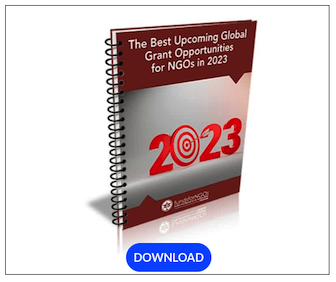
Deadline: 21-Apr-23
Nominations are now open for the UNESCO-Japan Prize on Education for sustainable development, funded by the Government of Japan, consists of three annual awards of USD 50,000 for each recipient.
It was awarded for the first time by the Director-General of UNESCO in November 2015. The Prize and award winners recognize the role of education in connecting the social, economic, cultural and environmental dimensions of sustainable development. It was established by the Executive Board of UNESCO at its 195th session within the framework of the Global Action Programme (GAP) on ESD and officially announced at the UNESCO World Conference on ESD (10-12 November 2014, Aichi-Nagoya, Japan).
Purpose
- The purpose of the UNESCO-Japan Prize on Education for Sustainable Development is to reward the outstanding efforts of institutions, organizations or other entities engaged in activities on Education for Sustainable Development (ESD). This is done within the framework “Education for Sustainable Development: Towards achieving the SDGs (ESD for 2030)”, [adopted by] the 40th session of the UNESCO General Conference, and acknowledged by the UN General Assembly in 2019 as global framework for ESD (2020-2030), in follow-up to the UNESCO Global Action Programme on ESD (2015-2019).
- The Prize rewards in particular activities that are innovative or have a high impact. The objective of the Prize is in conformity with UNESCO’s policies, namely the Strategic Objective 2 of UNESCO’s Medium-Term Strategy 2014-2021 (37C/4) – “empowering learners to be creative and responsible global citizens” – and the programme of the Organization in the field of ESD. The Prize also recognizes the role of ESD as an integral element of Sustainable Development Goal 4 on Education and as key enabler of all 17 SDGs.
Priority Action Areas
- Advancing Policy
- Transforming learning and training environments
- Developing capacities of educators and trainers
- Mobilizing youth
- Accelerating sustainable solutions at local level
Benefits
- The Prize shall be entitled “UNESCO-Japan Prize on Education for Sustainable Development”.
- The Prize shall be funded by the Government of Japan and shall consist of a total minimum payment of US $690,000 for its next six-year period (2020-2025), which shall cover both the monetary value of the Prize and the costs of administering the Prize for three biennial editions, excluding staff cost.
- Additional operating/management costs of the Prize, including all costs related to the award ceremony, public information activities and overhead charges, estimated at a minimum of US $80,000 per biennial edition, shall be fully covered by the Government of Japan.
- The Prize shall be awarded once every two years, starting from its 2021 edition. The Prize shall consist of three awards of US $50,000 for each of the three recipients, each of which is considered to merit a Prize.
Eligibility Criteria
- Institutions, organizations or other entities engaged in Education for Sustainable Development (ESD). Candidates shall have made significant contributions to ESD, focusing on one or more of the five Priority Action Areas of the “ESD for 2030” framework: (1) policy support, (2) whole-institution approaches, (3) educators, (4) youth and (5) local communities, and contribute to the achievement of the SDGs through education. Prizes may be conferred upon institutions, non-governmental organizations or other entities engaged in ESD.
- Nominations can be submitted to the Director-General of UNESCO by Governments of Member States via their Permanent Delegation to UNESCO, and by Non-Governmental Organizations (NGOs) in official partnership with UNESCO. Each Permanent Delegation or NGO can make up to three nominations for any edition of the Prize. Self-nominations are not accepted.
- The nomination form must be completed online in English or French via a dedicated platform.
- It is possible for National Commissions to UNESCO to access and complete the online form. However, any nomination by a National Commission will need to be submitted by the Permanent Delegation to UNESCO of the respective Member State. An automatic notification message will be sent to the official e-mail address of the Delegation to this end.
- If a National Commission or Permanent Delegation to UNESCO wishes that the form be completed electronically by the nominees, UNESCO can provide the nominees an access to the platform.
- Attention should be paid to presenting the project/programme of the nominee in a clear and structured way, following the instructions given in the form.
- All supporting material (e.g. publications, photos, videos) must be transmitted electronically through the online system.
- While completing the form, please also keep in mind that the project/programme will be assessed by the Jury on the basis of the selection criteria.
Selection Criteria
- The three Prize winners are selected by the Director-General of UNESCO on the basis of recommendations made by an international independent jury consisting of five experts.
- The project/programme of the nominee are assessed by the Jury on the basis of the following criteria:
- Transformation
- The project/programme practices Education for Sustainable Development (ESD) as transformative education in support of sustainable development, leading to individual and social change.
- Integration
- The project/programme addresses the three dimensions of sustainable development (society, economy, environment) in an integrated way.
- Innovation
- The project/programme demonstrates an innovative approach to ESD.
- Transformation
- In addition to these three criteria, the project/programme should:
- be ongoing and have been running for at least four years
- show a presence of evidence of results and have a high impact relative to the invested resources
- be replicable and scalable
- contribute to one or more of the five priority action areas of the ESD for 2030 framework.
For more information, visit UNESCO-Japan.
